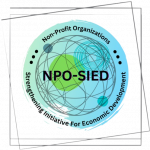
FAQ
FAQ
Find Out Answers Here

This EDA Proposal Package Checklist will help you determine if you have all the documents and requirements to submit a proposal to EDA.
A wide range of technical, planning, workforce development, entrepreneurship, public works, and infrastructure projects are eligible for funding from the Economic Adjustment Assistance program. For more details, see Public Works and Economic Adjustment Assistance (PWEAA).
- EDA accepts electronic submissions of applications through Grants.gov. EDA will not accept paper, facsimile, or email transmissions of applications.
- The applicant must have an active registration in the System for Award Management (SAM.gov) and an active Grants.gov account to be ready to submit.
- For nonprofit organizations, the applicant entity must have a 501(c)(3) tax-exempt status as recognized by the Internal Revenue Service.
price trends, and Land area. To learn more about privacy and Property Value pages.
Contact the Oficina de Revisión de Propuestas Federales (SPOC) at the Puerto Rico Planning Board and follow their instructions to comply with federal Executive Order 12372.
An applicant must obtain, complete, and submit an application electronically through the Economic Development Grants Experience (EDGE) at sfgrants.eda.gov. Please contact your local EDA Representative Please reach out to an EDA representative for assistance in filling out your application. Click here for your local contact information.
The presumptive grant rate is 80%; with a 20% matching contribution of the proponent. According to EDA requirements the contribution of the proponent should be committed, available, and unencumbered and that it does not come from a federal source. These funds would be immediately available if this proposal is approved. Unlike with past EDA grant programs, applications that provide more matching contribution of the proponent may be more competitive.
The applicant must document that the matching share will: (i) be committed to the project for the period of performance, (ii) be available as needed, and (iii) not be conditioned or encumbered in any way that may preclude its use consistent with the requirements of EDA investment assistance.
The following link is a sample Matching Letter Template with the requirements for either construction or non-construction projects.Documented in-kind contributions may provide the required non-Federal Share of the total project cost, but they must be eligible project costs and meet applicable federal cost principles and uniform administrative requirements. Examples of in-kind contributions can include space, equipment, services, or forgiveness or assumptions of debt.
Funds from other Federal financial assistance awards may be considered matching share funds only if authorized by statute, which may be determined by EDA’s reasonable interpretation of the statute.
If indirect costs are included in the budget for non-construction projects, the applicant must include documentation (evidence) to support the indirect cost rate they are using (unless claiming the 10 percent de minimis indirect cost rate, discussed in this link). For most applicants, documentation will entail the submission of a copy of its current, approved negotiated indirect cost rate agreement (NICRA).
EDA regulations requires a First Lien Mortgage on the property. It is a requirement from EDA that the Recipient must hold title to Project Real Property or have an already Long-Term Lease that allows for the first lien mortgage.
At the time of application, in addition to corresponding forms for construction projects, EDA requires:
- Preliminary Engineering Report and
- Environmental Narrative
See pages 20-21 of Fiscal Year 2023 Public Works and Economic Adjustment Assistance Notice of Funding Opportunity (FY23 PWEAA NOFO)
Technically, projects can have both construction and non-construction purposes but, historically, EDA does not recommend making submissions with this double purpose. You should prioritize which component of your project is more crucial for the economic development of your area or is more feasible to be accomplished by your organization. As with any project, EDA strongly encourages applicants to consult with the appropriate POC (Point of Contact) to discuss whether their project aligns with EDA’s Investment Priorities and EDA’s eligibility requirements, cost-sharing requirements, property standards, and other requirements.
Usually, applicants are recommended to choose between construction or non-construction projects or submit two separate applications.
As published in the current Notice of Funding Opportunity, the following limits apply to funds from the Economic Adjustment Assistance:
- Award Ceiling: $2,500,000
- Award Floor: $150,000
For construction, as published in the current Notice of Funding Opportunity, the following limits apply to funds:
- Award Ceiling: $5,000,000
- Award Floor: $600,000
Currently, Puerto Rico and the U.S. Virgin Islands do not have an approved CEDS, but the following documents are accepted as CEDS:
- For P.R. refer to Economic and Disaster Recovery Plan for PR- English version (click here for Spanish version).
- There is a CEDS for the Southern Puerto Rico Economic Development District, which consists of 6 municipalities: Guánica, Yauco, Guayanilla, Peñuelas, Ponce, and Juana Díaz.
- For the Virgin Islands refer to USVI latest version of CEDS.
The proposal narrative should refer to the CEDS equivalent document and should be aligned with at least one or more Courses of Action.
The proponent organization will need commitment letters from key partners mentioned in the proposal. These letters should mention the specific role the partner has in the project. There should be a letter for every active project partner referred to in the proposal document.
EDA encourages eligible applicants to submit their applications as soon as possible, and strongly advises eligible applicants to submit complete applications so that EDA can review and process the application in time to get a potential award in place prior to deadlines imposed by Congress.
There are no application submission deadlines. Applications will be accepted on an ongoing basis until the publication of a new PWEAA Notice of Funding Opportunity (NOFO), cancellation of this PWEAA NOFO, or all available funds have been expended. EDA intends to review applications expeditiously upon receipt of the complete application.
EDA strongly encourages applicants to submit applications early and not wait until the application deadline.
From our experience, EDA could take from 2 to 6 months to have a preliminary decision to contact you for further information, and 2 to 4 additional months to award the grant.
From our experience, EDA could take from 2 to 6 months to have a preliminary decision to contact you for further information, and 2 to 4 additional months to award the grant.
The NPO-SIED staff are not EDA employees, but work closely with local EDA representatives on behalf of the economic strengthening and recovery of the island. The assistance given is based on our long-time experience working with the agency, the constant feedback, and meetings discussing projects by local proponents. The staff intends to work as a liaison between potential EDA grantees and the agency.
- Equity: Economic development planning or implementation projects that advance equity across America through investments that directly benefit 1) one or more traditionally underserved populations, including but not limited to women, Black, Latino, and Indigenous and Native American persons, Asian Americans, and Pacific Islanders or 2) underserved communities within geographies that have been systemically and/or systematically denied a full opportunity to participate in aspects of economic prosperity such as Tribal Lands, Persistent Poverty Counties, and rural areas with demonstrated, historical underservice. For more information on these populations and geographies see: https://www.whitehouse.gov/briefing-room/presidential-actions/2021/01/20/executive-order-advancing-racial-equity-and-support-for-underserved-communities-through-the-federal-government/.
- Recovery & Resilience: Economic development planning or implementation projects that build economic resilience to and long-term recovery from economic shocks, like those experienced by coal and power plant communities, or other communities impacted by the decline of an important industry or a natural disaster, that may benefit from economic diversification-focused resilience.
- Workforce Development: Economic development planning or implementation projects that support workforce education and skills training activities directly connected to the hiring and skills needs of the business community and that result in well-paying, quality jobs.
- Manufacturing: Economic development planning or implementation projects that encourage job creation, business expansion, technology and capital upgrades, and productivity growth in manufacturing, including efforts that contribute to the competitiveness and growth of domestic suppliers or to the domestic production of innovative, high-value products and production technologies.
- Technology-Based Economic Development: Economic development planning or implementation projects that foster regional knowledge ecosystems that support entrepreneurs and startups, including the commercialization of new technologies, that are creating technology-driven businesses and high-skilled, well-paying jobs of the future.
- Environmentally-Sustainable Development: Economic development planning or implementation projects that help address the climate crisis including through the development and implementation of green products, green processes (including green infrastructure), green places, and green buildings.
- Exports & FDI: Economic development planning or implementation projects that enhance or build community assets to support growth in US exports or increased foreign direct investment.
- Instituto de Estadísticas de PR: Censo Poblacional
- Junta de Planificación: Multiplicador de Empleo
- Funding opportunities for the 3rd sector in the U.S. Caribbean
- Economic Recovery Support Function Operations
- Southern Puerto Rico EDD
- StateBook: Invest Puerto Rico
- US Bureau of Labor Statistics
- US Census Bureau
- V2A Consulting: Puerto Rico Economic Dashboard
NPO-SIED Staff
- David Santiago Rosado, PhD.
Economic Recovery Specialist
Business and Economic Development Center
EDA University Center
University of Puerto Rico – Mayagüez Campus
Tel. (787) 832-4040, ext. 5352, 3613, 5600
- Alexxa T. González Rivera
NPO-SIED Project Assistant
Business and Economic Development Center
Business Administration, UPR Mayaguez Campus
EDA Field Office (Puerto Rico) Staff
- Juan Bauzá
Economic Development Representative
US Department of Commerce
Economic Development Administration
Philadelphia Regional Office
PR & USVI
215-435-2212
- Zulma E. Velázquez, MPA
Economic Development Specialist
Economic Development Administration
US Department of Commerce
(215)990-9322
Single Point of Contact (SPOC) Office
- Lcda. Blanche González Hodge
Directora – Oficina de Revisión de Propuestas Federales
(787) 723-6200
Ext. 16134
- Sra. Ileana Andino Pagán
Auxiliar de Sistemas de Oficina
Oficina de Revisión de Propuestas Federales
(787) 723-6200, Ext. 16024
Subscribe us
Be first to know more!

© 2022 CNDE | Colegio de Administración de Empresas | Recinto Universitario de Mayagüez | Universidad de Puerto Rico. Todos los derechos reservados.